Starting a physical therapy journey can be a life-changing experience, with the promise of increased mobility, strength, and general well-being. In order for physical therapy to be successful, patients themselves must actively participate and be committed. We’ll explore the crucial actions and strategies people can take to make sure their physical therapy experience is successful.
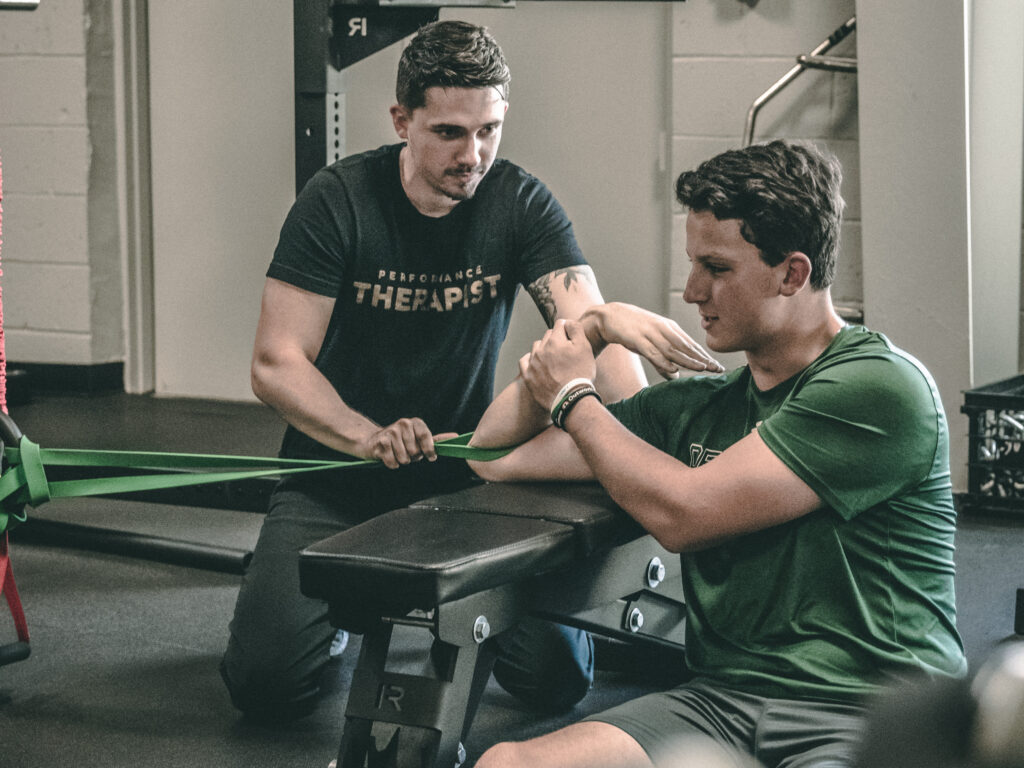
Physical therapy can help you recover from injuries, pain, and discomfort. It can be hard work, but it is also very important to make progress and achieve your goals. Addressing a lack of motivation or commitment is the first step and is essential to ensure a successful rehabilitation. Sometimes it can be tough to stay motivated and keep trying, but here are tips to help you stay motivated.
- Set Small, Achievable Goals:
Why Set Small Goals?
Breaking down your larger rehabilitation goals into smaller, more manageable milestones can make the process feel less daunting. Instead of fixating on the ultimate outcome, focus on the steps you need to take to get there. After an ACL surgery for instance, instead of focusing on how hard it may be to get back to running, think about trying to walk first. Here’s why setting small goals can be a game-changer:

- Tangible Progress
Setting specific goals serves as a clear roadmap for your journey, guiding you toward your desired destination. These well-defined objectives act as benchmarks you can measure, allowing you to track your progress with precision. As you consistently reach and surpass these milestones, your confidence grows, providing a continuous source of motivation to propel you toward the next milestone.
- Increased Motivation
Achievable goals have the power to boost your motivation and give your rehabilitation process a new life each time you reach something new. You feel a tangible sense of accomplishment as you complete these doable tasks, which fuels your burning determination to keep going. Your commitment will be guided toward the direction of recovery and advancement by the appeal of these attainable milestones. These milestones can act as a constant beacon of your desired end goal.
- Improved Focus
Setting small goals in your recovery journey can greatly improve your ability to focus. You gain a clear sense of direction and reduce the risk of feeling overwhelmed by breaking down your larger objectives into manageable tasks. This increased clarity allows you to focus your efforts on the most important aspects of recovery, resulting in more effective progress.
- Keep track of your progress:
Why Progress Tracking Matters?
Physical therapy progress tracking is important because it provides clear proof of your recovery journey. Carefully documenting your improvements and setbacks throughout the process, allows you to look back at your journey and motivates you to stay committed. Here are some key reasons why progress tracking matters:

- Measuring Growth and Success:
It is important to keep track of your progress during your recovery journey because it provides a roadmap for your progress. By documenting your wins, setbacks, and milestones, you create a tangible record of your recovery journey. This evidence can be a source of encouragement, reminding you that even in challenging situations, you’ve made significant progress along the way.
- Staying Accountable and Focused:
Progress tracking is critical for staying on track with your goals. When you document your journey, you have a visual representation of your dedication. This accountability helps you stay focused and disciplined because seeing your efforts on paper or in a journal makes you less likely to deviate from your path.
- Sustained Motivation and Celebration:
Keeping a record of your progress is also important for maintaining motivation. It enables you to recognize and celebrate your accomplishments and milestones along the way, reinforcing your commitment to recovery. When you look back at your journal and see how far you’ve come, it can be a powerful source of motivation, reminding you that your hard work is paying off and that a successful recovery is within your grasp.
3. Ask for help
The benefits of Asking for help
Having a support system during your physical therapy will increase your chances of a successful recovery. Involving a support network of friends and family also fosters motivation and accountability, promoting consistency in your therapy routines. Here are the benefits you can get when you ask for help:

- Professional Guidance:
Seek advice from a qualified physical therapist or healthcare professional. They can provide specialized knowledge, customized exercises, and expert advice on how to help you recover faster. Their knowledge and experience can assist you in achieving your objectives more efficiently and safely.
- Increase In Your Support Network
Recognize that inviting the help of friends and family can provide you with emotional support and encouragement throughout your physical therapy journey. Sharing your goals and progress with loved ones can help you feel more accountable and motivated.
- Creates a Nurturing Environment:
Surround yourself with a positive and encouraging environment to help you stay motivated. This can include both the physical environment in which you perform your therapy exercises and the people with whom you regularly interact during your recovery. A supportive environment can help you stay committed to your recovery goals and overcome obstacles along the way.
4. Take breaks
Taking breaks in physical therapy sessions is crucial for preventing overexertion and injuries. Allowing therapists to monitor progress and adapt treatment plans, supports patients in staying motivated and reducing mental fatigue. Having breaks between physical therapy sessions ultimately enhances the effectiveness of the rehabilitation process.
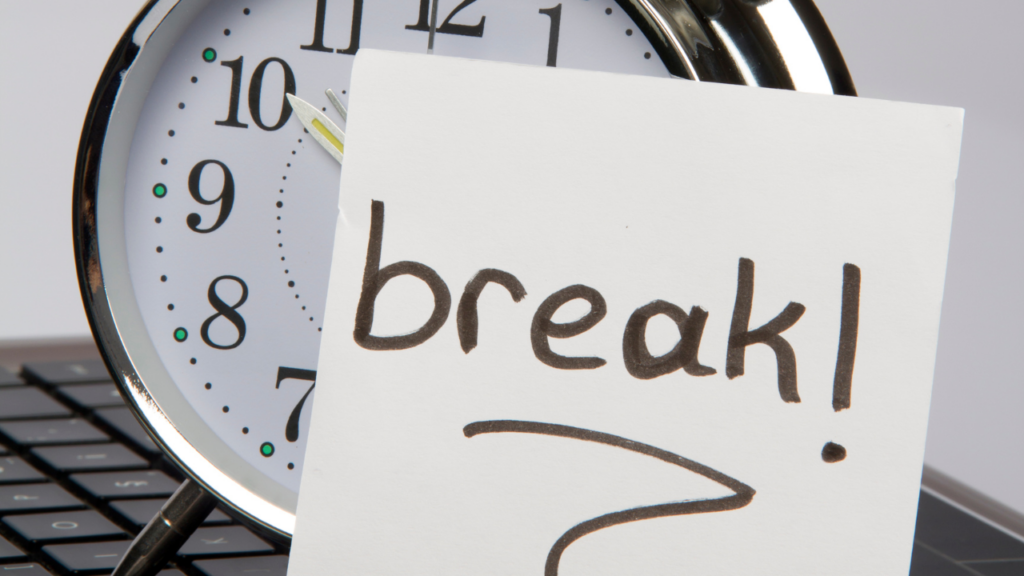
- Preventing You From Burnout:
Taking breaks is critical to avoiding physical and mental exhaustion during the physically demanding process of physical therapy. Overexertion can cause fatigue and a loss of motivation, making it difficult to stay committed to your rehabilitation goals. Regular breaks allow you to recharge and stay motivated.
- Facilitate Recovery
Breaks allow your body to recover and repair itself. Your muscles can rebuild and adapt to the demands of therapy during rest periods, which are critical for growth. Continuous, uninterrupted activity can alter the recovery process, making regular breaks essential for better results. For example, you typically wouldn’t want to go to physical therapy 7 days a week.
- Mental Well-being:
Physical therapy can also be mentally demanding. Breaks offer not only physical relief but also an opportunity to reset mentally. This allows you to stay focused, motivated, and positive throughout your therapy sessions. Adequate rest and sleep also help with mental clarity and overall well-being. Sleeping enough keeps you energized and engaged in your rehabilitation process.
5. Have fun
Why have fun while doing Physical Therapy
It is critical to have fun during physical therapy because it helps to maintain motivation and consistency in performing exercises. Individuals are more likely to stick to their rehabilitation routines when their PT environment is enjoyable, which is critical for long-term success. A positive and enjoyable approach can also reduce stress and anxiety, improving the mental state of those undergoing physical therapy. Here are some strong reasons why you should enjoy your physical therapy sessions:
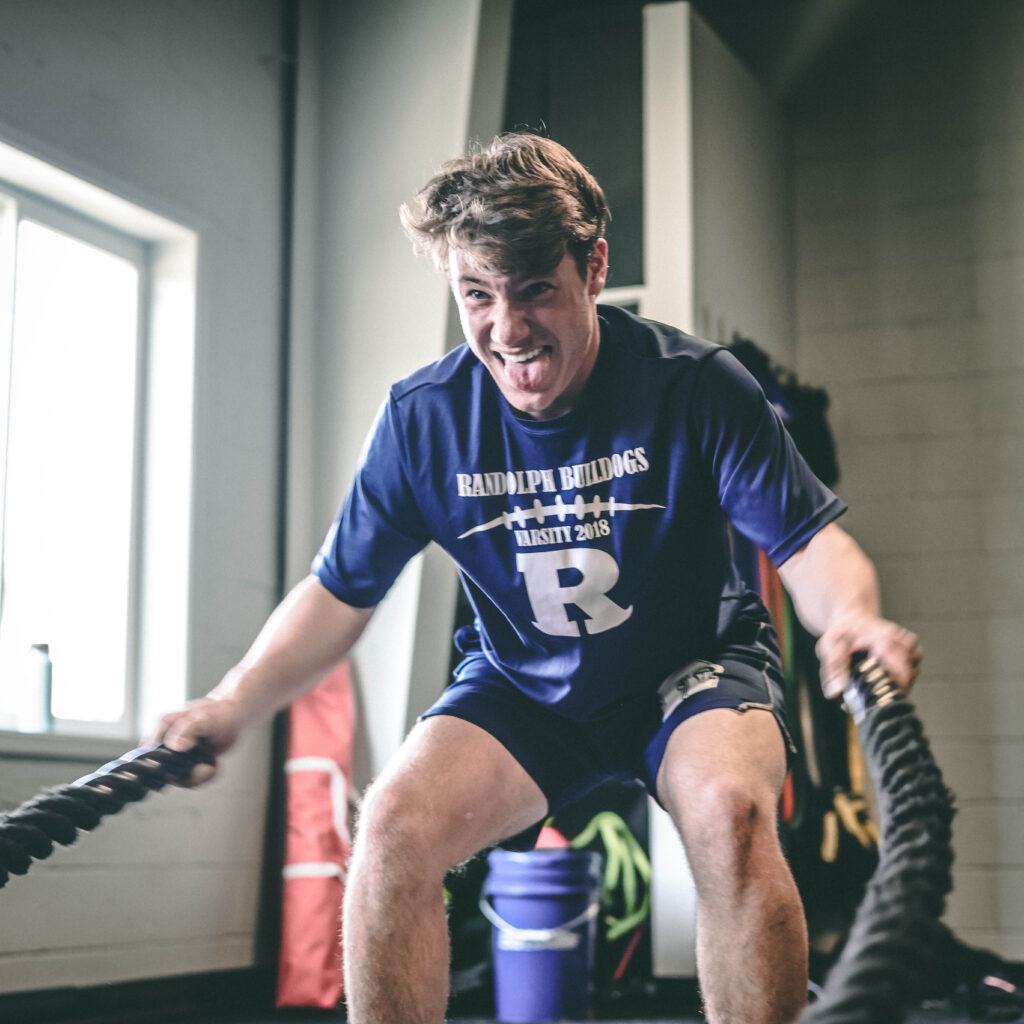
- Sustaining Motivation
Including aspects of fun in your physical therapy routine can help you stay motivated and adhere to your treatment plan. When therapy is enjoyable, you are more likely to look forward to sessions, increasing your commitment to the exercises and the recovery process as a whole.
- Reducing Stress and Anxiety
Physical therapy can be difficult, and some people may experience stress or anxiety as a result of their rehabilitation. Participating in more light-hearted activities or conversations during physical therapy can act as a stress-relief mechanism, reducing negative emotions and encouraging a positive outlook on the road to recovery.
- Enhancing Progress:
Having fun during physical therapy can enhance your overall experience, increasing the likelihood that you will complete your exercises and maintain your dedication to the process. This positive attitude and engagement can improve the efficacy of your therapy, potentially leading to faster and more successful outcomes.
Lastly, It is important to remember that physical therapy can be challenging but rewarding. It takes commitment and perseverance, even when faced with uncomfortable feelings. The road to recovery provides opportunities for personal development, and you can overcome challenges and become physically and mentally stronger if you approach it with a positive attitude. Accepting this process promotes not only physical healing but also resilience and self-confidence.
Reasons Physical Therapy Can Feel Like It’s Failing
- Lack of motivation or commitment

As mentioned earlier, motivation and commitment are essential to successful physical therapy. Lacking motivation or commitment may prevent a person’s success in physical therapy. Physical therapy frequently entails tackling difficult exercises and adhering to a structured regimen that requires consistent effort and dedication.
When a person lacks the motivation or commitment required for this therapeutic process, their ability to achieve the desired results can be compromised. Without a strong sense of motivation, it is easier to skip exercises, miss appointments, or simply not invest the necessary energy into the rehabilitation process, limiting the potential for positive outcomes in their recovery journey.
- Not following the treatment plan
Deviation from the prescribed treatment plan is a significant factor that can hinder an individual’s physical therapy progress. The treatment plan, meticulously crafted by healthcare professionals, serves as a road map for achieving the specific rehabilitation objectives and goals. When a person fails to follow this structured plan, their chances of making the anticipated progress for successful physical therapy are jeopardized.

Individuals who do not adhere to the treatment plan risk undermining the benefits that result from consistent, tailored treatments. This can result in poor results, delayed recovery, and even worsening of pre-existing physical issues. As a result, strict adherence to the prescribed treatment plan is critical in order to maximize the effectiveness of physical therapy and achieve the desired rehabilitation goals. As mentioned above, building a support system and tracking your progress are ways to ensure you stick to your treatment plans!
- Physical limitations
Physical therapy can feel difficult due to physical restrictions. You may feel they hinder exercise performance, which could lead to what feels like less successful therapy sessions and challenges with enhancing mobility, strength, and endurance.
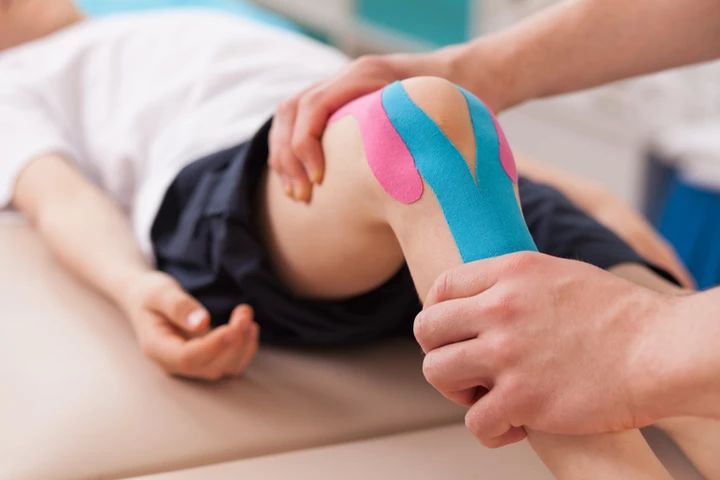
To address these constraints, treatment plans may need to be modified and personalized further to gradually improve physical capabilities. Physical therapy can be carefully tailored in order to get around physical obstacles and guarantee that patients receive the specialized care they need for a full recovery.
4. Psychological barriers

Psychological obstacles, such as discomfort, fear, and anxiety, can seriously impede an individual’s engagement in physical therapy and restrict the progress of their recovery. Pain can cause anxiety and reluctance to fully engage in therapy, limiting the range of motion and therefore the success of treatment. Fear, anxiety, and past injury events can all be sources of worry such as in relation to being fearful of getting hurt again. As mentioned before, having a support system around you can help, especially when you may be fearful of starting physical therapy!
5. Lack of support
A person’s journey through physical therapy can be significantly impacted by the absence of a strong support system. A person’s motivation, adherence to treatment plans, and general emotional well-being can all be significantly boosted by friends, family, or caregivers during the rehabilitation process. A lack of this crucial support system can make things feel more difficult and isolating. This could impede a person’s progress in physical therapy, affecting their motivation. As mentioned above, it can be helpful to keep track of your progress in a journal so that way if things feel tough, you can motivate yourself by reviewing how far you’ve come on your recovery journey!
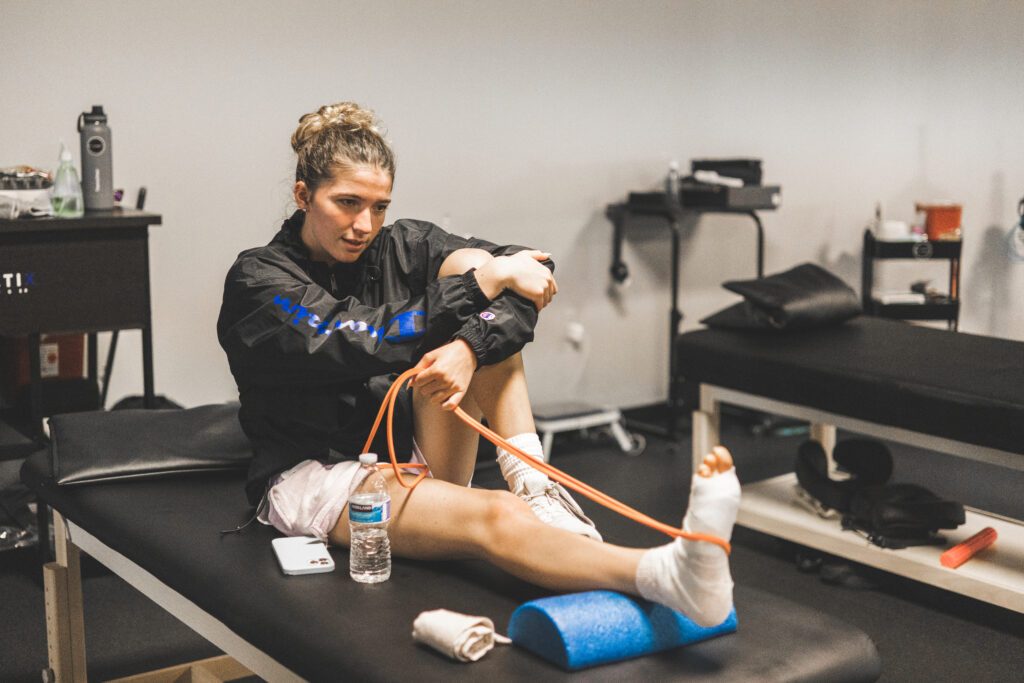
Here at Myokinetix, we are dedicated to helping people achieve successful recoveries from their chronic pain or injury. Our team of expert healthcare professionals specializes in providing personalized one-on-one treatment plans in a state-of-the-art facility to ensure the best possible care and support, addressing not only the physical aspect but also the emotional and mental well-being of our patients.
Our commitment is to help people swiftly return to their normal lives, enabling them to enjoy life to the fullest once again. If you’re seeking a successful physical therapy experience, look no further than Myokinetix. Whether you’re an athlete or just someone looking to get back to your normal routine, our facility provides the tools, resources, equipment, and environment you need to succeed, ensuring you have everything necessary for a successful recovery.
At Myokinetix, we’ve cultivated a supportive community of individuals working towards their recovery goals. When you see others making progress, it’s a powerful motivator to push yourself and do your best too! Our inclusive and encouraging environment is designed to help you regain your strength and return to what you love!
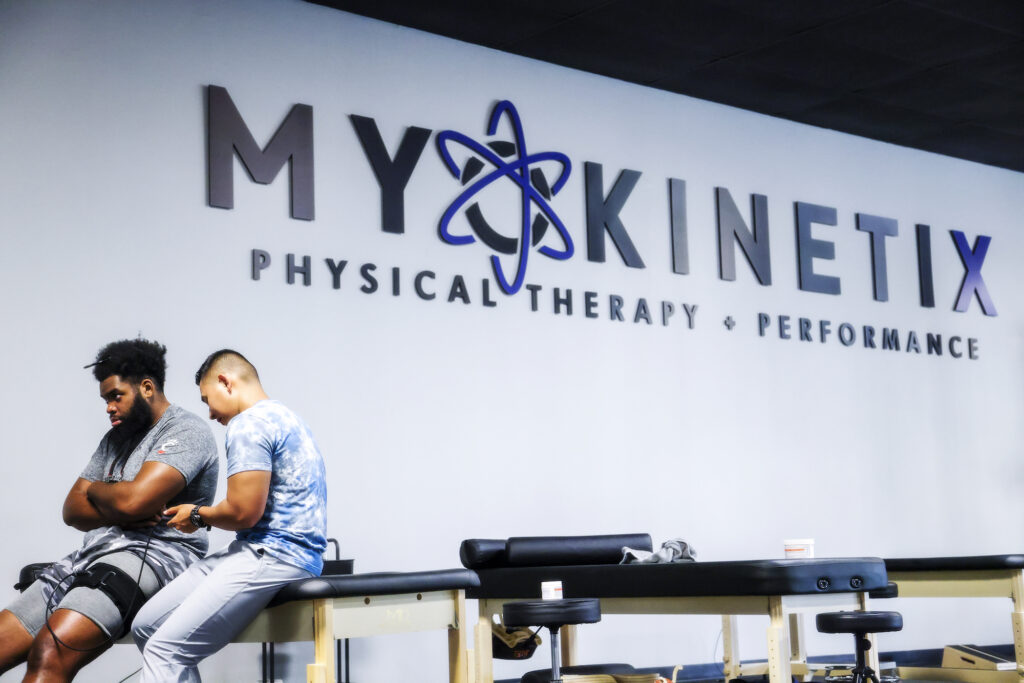
CONTACT US TODAY at 973-585-4990 to learn more or schedule a time to talk with our patient development coordinator here. Let us guide you on the path to recovery and successful physical therapy!

Ouch! My legs are still in pain even though it’s been almost a week since I joined a marathon downtown. Never mind, I shall contact a therapist to heal me accordingly. In the meantime, kudos for convincing us that we could enjoy successful physical therapy by monitoring the overall progress.
I liked that you said that to address physical constraints, physical therapy can be carefully tailored to help patients fully recover. This is something that my uncle should consider because he will undergo a knee replacement procedure next month. He wants to get help in recovering so he can restore the quality of his life quickly, so your tips will make sense to him.